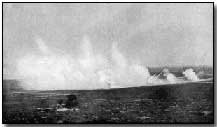Being totalitarian can be described as the form of government that does not tolerate different ideas or opinions and has dictatorial control over their people. During this time, Japan had Hirohito as their emperor. This alone point to the fact that their was a single ruler who had control over the people. Although the government had police with strict laws and penalties, it was not a complete secret. At this point in time, Japan was very focussed around their military. As their government began to lose to power, the military stayed strong because of the use of propaganda and because of their success. They were able to take control over Korea which gave the people of Japan a sense of strength and stability. Despite treaties and other agreements with nations such as the U.S. (which did not want Japan to grow their army), Japan chose to spend the time and money to grow their army and navy to a point where they were the 3rd largest navy in the world.
I think that Japan could be described as totalitarian. They had an emperor with complete control and a military with even more control. They captured the trust of their people with their ability to win battles and conquer nations.
 Utterly unprepared for what was to come, the [French] divisions gazed for a short while spellbound at the strange phenomenon they saw coming slowly toward them.
Utterly unprepared for what was to come, the [French] divisions gazed for a short while spellbound at the strange phenomenon they saw coming slowly toward them.



